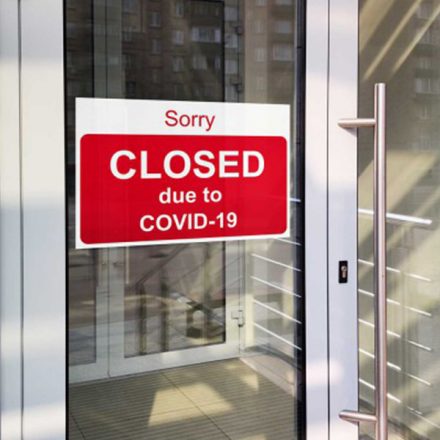Coronavirus and Commercial Property
On 23 April 2020, the Government announced new measures to protect the UK high street from aggressive rent collection and closure.
The Government has temporarily restricted the use of Statutory Demands and Winding-up Petitions where a company cannot pay its invoices due to Coronavirus. It would appear that this is not a wholesale ban on use of statutory demands or winding up but means that a landlord cannot serve a Statutory Demand on a commercial company tenant who has failed to pay the rent where the company’s inability to pay is due to Coronavirus and neither can the landlord issue a Winding-up Petition against the tenant in such circumstances. This does beg the question as to how you decide whether the inability to pay is as a result of Coronavirus. If a Winding-up Petition is served this will be decided by the court. The general view seems to be that courts will take a lenient view of any tenants position however and it would be a brave (or very well informed) Landlord who would take such a step.
This change is in place until 30 June 2020. The purpose of this announcement is to ensure that commercial tenants do not fall into deeper financial strain.
The restrictions on statutory demands and winding up proceedings only apply to companies. It is important to note that there is no such protection for an individual tenant.
The Government has also laid secondary legislation to provide tenants with more breathing space to pay rent by preventing landlords from using the Commercial Rent Arrears Recovery (CRAR) procedure, unless they are owed 90 days of unpaid rent.
Ordinarily, a landlord of commercial premises is entitled to instruct enforcement agents to collect unpaid rent or take control of goods by entering the commercial premises upon notice to the tenant. Under the secondary legislation, the landlord will no longer be able to take this step until after 30th June 2020 (this date might be extended), unless the rent owed is over 90 days of unpaid rent.
The Business Secretary, Alok Sharma, commented that the Government is “taking steps to ensure the minority of landlords using aggressive tactics to collect their rents can no longer do so while the COVID-19 emergency continues”.
The Government previously implemented a moratorium on eviction of commercial tenants for at least a three-month period. Under the current temporary restriction, commercial landlords are unable to enforce re-entry or forfeiture for non-payment of rent for at least three months pursuant to Section 82 of the Coronavirus Act 2020. This means that no business tenant will be forced out of its premises for unpaid rent prior to 30 June 2020.
It is important to note that the legislation gives the Government the power to extend the date of 30th June 2020 further, so it is important to keep updated with the announcements.
What does this mean for a commercial tenant?
If, as a tenant of commercial premises, you are faced with a Statutory Demand in respect of unpaid rent, or your landlord seeks to take enforcement action by way of forfeiture or Commercial Rent Arrears Recovery, you may be able to obtain an injunction from the Court to prevent the landlord from taking enforcement action.
However, it is important, to note that the Government does call on tenants to pay rent where they can afford it or pay what they can, in recognition of the strains felt by commercial landlords too.
What does this mean for the commercial landlord?
The right to take enforcement action for unpaid rent has been heavily restricted. Most measures are temporary, but could be extended further.
At present, as a landlord of commercial premises, you can still issue Court proceedings for non-payment of rent pursuant to a claim for breach of contract, in the County Court. If the value of the claim exceeds £10,000-, you would be entitled to recover reasonable legal costs from the tenant.
If there is a rent deposit, as the landlord, you may be able to draw down on the deposit. The landlord should be vigilant and check the terms of the lease and/or rent deposit deed to ensure that there are no restrictions in doing so. If the rent deposit is drawn down, you can then require the tenant to top up the deposit following the withdrawal and if this is not done so, this may give rise to a Court claim.
It may also be worth considering action against any Guarantor of the Tenant. Although restrictions on Winding up petitions against a Guarantor which is a company may apply, the service of a Statutory Demand against an individual Guarantor would still seem to be an option.
The Government has announced an unprecedented package of support to help commercial landlords, including through the expansion of the Coronavirus Business Interruptions Loans Scheme.
It is important to note that the Government’s guidance and legislation, including the impending legislation, does not suspend or extinguish the tenant’s liability to pay rent under a commercial lease. It is a temporary suspension to the enforcement of non-payment of rent. We consider it important for there to be regular communications between the landlord and the tenant and for both parties to keep matters under review, particularly beyond 30 June 2020.
